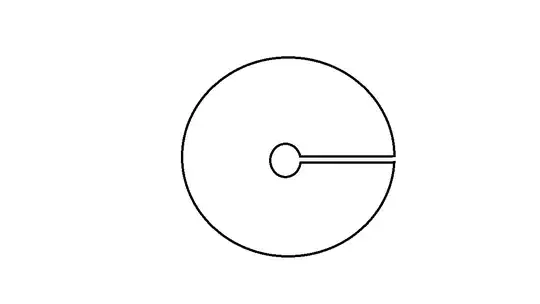Prove using contour integration that $$\displaystyle\int_0^\infty \frac{\ln x}{x^2+a^2}dx=\frac{\pi}{2a}\ln a$$
I used the substitution $x=e^t$ to transform the integral to $$\int_{-\infty}^\infty \frac{te^t}{e^{2t}+a^2}dt$$ Now it is easier for integrands involving exponential terms using rectangular contour in upper half plane, and I have successfully evaluated the integral by this method. But without transforming, if I require to evaluate the integral directly, the $\ln$ term gives a branch point around $x=0$ and a branch cut along positive $x$-axis. So I chose $\displaystyle f(z)=\frac{(\ln z)^2}{z^2+a^2}$ and a contour accordingly as below : 
Now integral around smaller contour and outer contour is $0$ and the poles are $ia$ and $-ia$. So the integral becomes $$\int_0^\infty \frac{(\ln x)^2}{x^2+a^2}dx+\int_\infty^0 \frac{(\ln x+2i\pi)^2}{x^2+a^2}dx=2\pi i\bigg(\frac{\ln^2(ia)}{2ia}+\frac{\ln^2(-ia)}{-2ia}\bigg)=\frac{2i\pi^2\ln a}{a} \\ \implies -4i\pi\int_0^\infty \frac{\ln x}{x^2+a^2}dx+4\pi^2\int_0^\infty \frac{dx}{x^2+a^2}=\frac{2i\pi^2\ln a}{a} \\ \implies \int_0^\infty \frac{\ln x}{x^2+a^2}dx=-\frac{\pi}{2a}\ln a \ \ \ \ \text{and} \ \ \ \ \ \int_0^\infty \frac{dx}{x^2+a^2}=0$$ which is absurd. Where am I going wrong? Any help is appreciated.